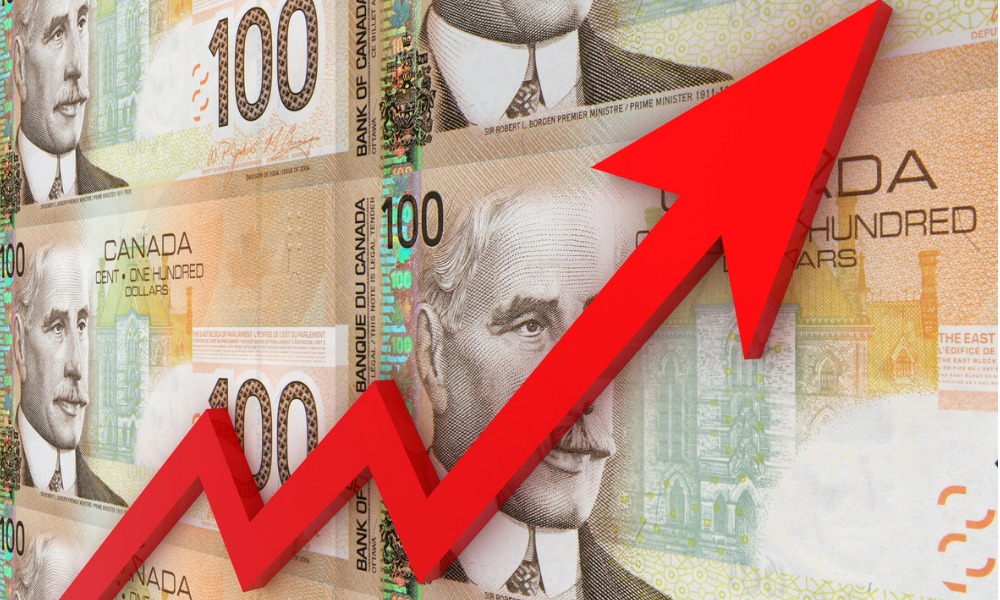Freeland and Trudeau prepare Canada’s economy for Trump's aggressive trade and tariff policies

As Donald Trump prepares to reassume office in the United States, Canada’s economic strategy is already adapting to anticipated shifts in US trade policy.
Canadian Deputy Prime Minister Chrystia Freeland recently expressed her intention to align with the Trump administration’s approach to tariffs and trade, particularly regarding China, in an effort to protect Canada from potential economic disruptions.
According to BNN Bloomberg, Freeland emphasized the Canadian government’s concerns over China’s “intentional policy of overcapacity” and cited recent tariffs on Chinese steel, aluminum, and electric vehicles as evidence of Canada’s alignment with US goals.
In a news conference, Freeland noted that she has been in touch with Robert Lighthizer, Trump’s former trade representative, who may assume a similar role in the next administration.
“[It’s] an area where Ambassador Lighthizer and I are very strongly in agreement,” she stated, underscoring Canada’s interest in ensuring a united North American front on trade issues.
Freeland’s statements come amid broader concerns over Trump’s anticipated policies, including sweeping new tariffs. Trump has pledged a minimum 10 percent tariff on all US imports, with no guaranteed exemptions for Canada.
Prime Minister Justin Trudeau echoed Freeland’s position, saying Canada is “prepared” for Trump’s potential policies and committed to strengthening Canada-US trade ties to “benefit Canadians.”
A report by T. Rowe Price identifies this “assertive approach to trade policy” as a hallmark of Trump’s economic agenda, highlighting the former president’s focus on tariffs, deregulation, and tax cuts.
The report suggests that Trump’s tariffs could range up to 60 percent on Chinese imports, setting the stage for a highly protectionist economic environment.
Additionally, the potential for the US government to cut corporate taxes from 21 percent to as low as 15 percent could increase competition for Canadianbusinesses.
Canadian Conservative leader Pierre Poilievre, ahead in recent polls, acknowledged this risk, warning that Trump’s tax cuts could drive “hundreds of thousands more jobs” south if Canada’s carbon tax remains unchanged.
The T. Rowe Price report also anticipates the potential inflationary impact of Trump’s trade and immigration policies. According to their analysis, tariffs could lead to increased costs for US businesses, potentially sparking a one-off inflation surge if businesses pass these costs onto consumers.
Additionally, the report notes that tightening immigration could lead to reduced labour supply, further pressuring wages and inflation over time. Such inflationary policies could elevate bond yields, impacting investment landscapes and market valuations.
Freeland sought to reassure Canadians that Ottawa is prepared for a scheduled review of the US-Mexico-Canada trade agreement in 2026, telling reporters that Canadian officials have been “very conscientious, very systematic” in maintaining relationships with Trump’s team.
In addition, she praised Trump’s role in crafting the 2018 version of the agreement, commenting that “he is proud of it, and I think he’s right to be proud of it.”
While Canada’s political leaders look for ways to align with the anticipated US economic agenda, analysts caution that Trump’s policies, as noted in the T. Rowe Price report, could have ripple effects throughout various markets.
Small-cap stocks in the US may benefit from anticipated deregulation, while energy companies, particularly in oil and gas, could see gains.
Conversely, sectors dependent on green energy initiatives, such as renewable energy companies, may face challenges due to Trump’s opposition to the Biden administration’s Inflation Reduction Act.
Trudeau reiterated Canada’s commitment to a strong trade relationship with the US, adding that the “extraordinary friendship and alliance” between the two countries would continue to be beneficial.
Freeland shared that Trump understands that Canada-US trade is beneficial for both economies, stating that their trade partnership “in no way undercuts American workers,” a primary concern of Trump’s economic team.
The Trudeau administration, like Canadian businesses, will be watching closely as the Trump administration’s policies take shape, aiming to maintain robust economic ties and safeguard Canada’s trade-driven economy in a shifting US policy landscape.



